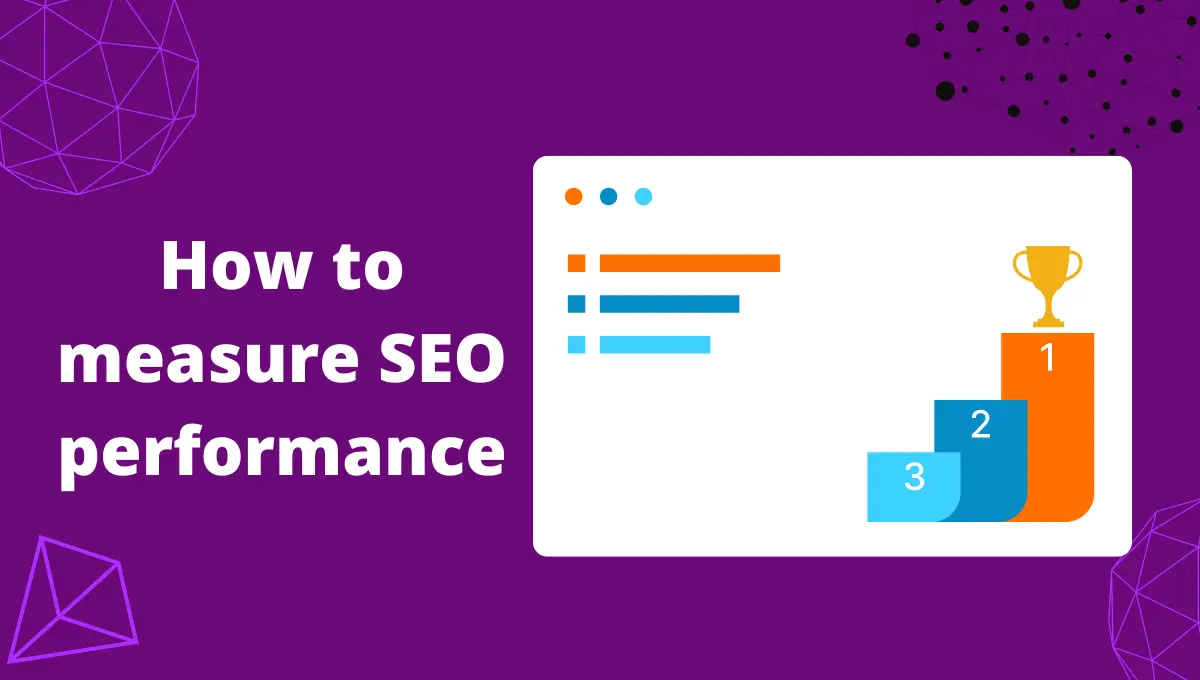Search Engine Optimization (SEO) is done to optimize your content and web pages to get maximum organic visibility on the search engine results page (SERP). It is one of the most effective marketing to bring maximum audience to top of the funnel (ToFU).
Having an effective strategy is just the first step of the process. To succeed in SEO, you need to track your SEO performance regularly and make improvements.
There are many metrics that you can use to measure SEO performance. This article gives you a list of all the metrics you can use to measure the performance and leverage your SEO strategies.
Why Is Measuring SEO Performance Important?
Know if your efforts are paying off
Only when you measure your SEO performance can you identify how you can improve it. It is important for the success of your campaigns, client retention, and ROI.
Many brands make the mistake of not tracking their SEO results. They spend so much on their campaigns and create tons of SEO – optimized content, backlinks. But they don’t check if their campaigns have given any results.
Know if the current approach works
Measuring your SEO performance can help you understand whether you need to make any changes to how you approach your campaigns.
No results don’t necessarily mean your campaign doesn’t work. It can also mean that your approach is not working and you need to make some changes in it.
Closely monitoring your SEO performance lets you understand if you are doing things right.
How do you measure SEO Performance?
There are several tools and metrics that you can use to measure your SEO performance. But you don’t have to stress yourself by using all of them.
Understand which metrics are useful for your business and measure your performance regularly. Here are some popular metrics many business use to measure their SEO performance.
Search Traffic
Organic traffic is the number of people who find your website through search engine results.
When people start visiting your website through organic search results, it means you are going the right way in your SEO.
It means that the keywords you are trying to rank for are the terms your customers use when searching for related products.
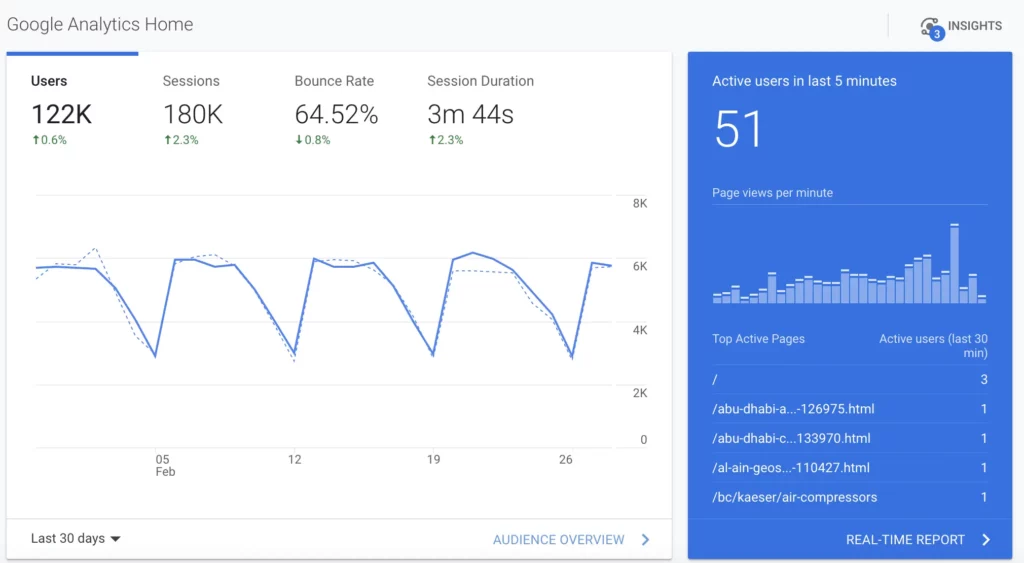
Google Analytics is one of the effective tools for measuring organic traffic. It allows you to perform complex analyses efficiently. You can measure your organic traffic by either sessions or users.
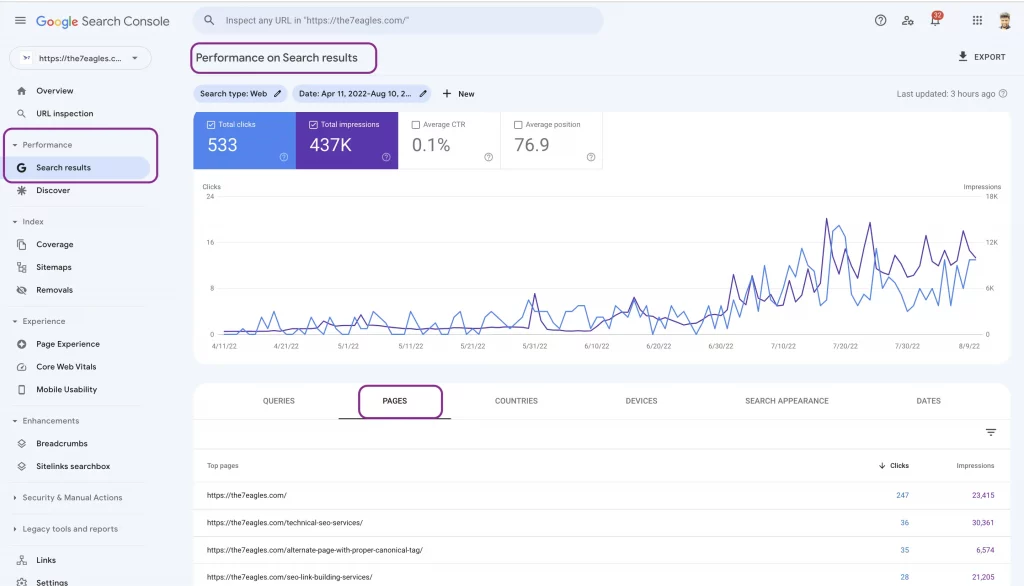
Google Search Console is another effective tool for tracking your organic traffic. You can calculate the Clicks you get through them.
You can also compare your organic search traffic with your competitors to measure your SEO performance.
Third-party tools like Semrush allow you to view competitors for any site based on the keywords you have in common with them.
Your organic search traffic is a rough estimate that is based on your
- keyword ranking,
- previous performance,
- search volume,
- compare performance,
- location wise performance,
- search queries and impression on respective web pages, and
- Regex.
Even though they may not be 100% accurate, you can use these results to gauge your performance and how you perform compared to your competitors.
Keyword position tracking
It’s more important to track your keywords’ organic position in the target countries. Every client checks about two parameters—organic traffic and keyword position.
Use Tools like Semrush, Ahrefs, Rank tracker, and Serpfox to track unlimited keyword by choosing device and country.
You can track multiple devices and locations. When keywords are tracked using professional SEO tools, it’s easy to share the report to your clients.
SERP visibility
When a person uses a particular keyword to search for something, Google generates a relevant SERP for them. These SERPs contain organic search results, Google ads, and SERP Features.
These SERP features include the following:
- Featured snippets
- Knowledge panels
- Image packs
- Also asked questions
- Reviews
- Videos
- Google maps entries
Search Engine Visibility measures how many people see your website in the search results for a keyword. You can track this metric through Google by searching for the relevant keywords.
These are also known as rich results, and get feature in Google search console under the section enhancement, if your website have these rich results.
CTR (Click-Through Rate)
Once the customers get their search results, they will select a website or page to visit. Your click-through rate (CTR) is the percentage of people who clicked on your page from the results page.
For example, if your website appeared on the results page 100 times in a week and 25 people have clicked on it, then your CTR is 25%
You can use this metric to gauge how your taglines and meta-descriptions are effective in attracting customers. If your CTR is low, you can improve it by optimizing your meta descriptions, URLs, titles, and taglines.
You can measure your CTR using Google Search Console or running SEO split tests and make changes accordingly.
Bounce Rate
Unlike CTR, having a high bounce rate is not good for your business. Your bounce rate represents the percentage of customers who visited your website but left without further interaction beyond the initial click.
According to Google, a visit is when a user clicks more than one page on your website. You can calculate your bounce rate to understand if your website design and content appeal to your customers.
Referring Domain & Backlinks
Referring domains are the website link your web page. It is one of Google’s top-ranking factors.
For example, if someone links to your website in their content, it means you have a backlink on their website, their website becomes your referring domain. You can gain insights into your link-building strategies by monitoring your backlinks.
You can easily track your backlinks by using SEO tools like SEMrush or Ahrefs Backlink Analytics. This tool lets you
- identify new backlinks,
- evaluate your website’s link-building progress, and
- identify when your backlinks are deleted.
Core Web Vitals
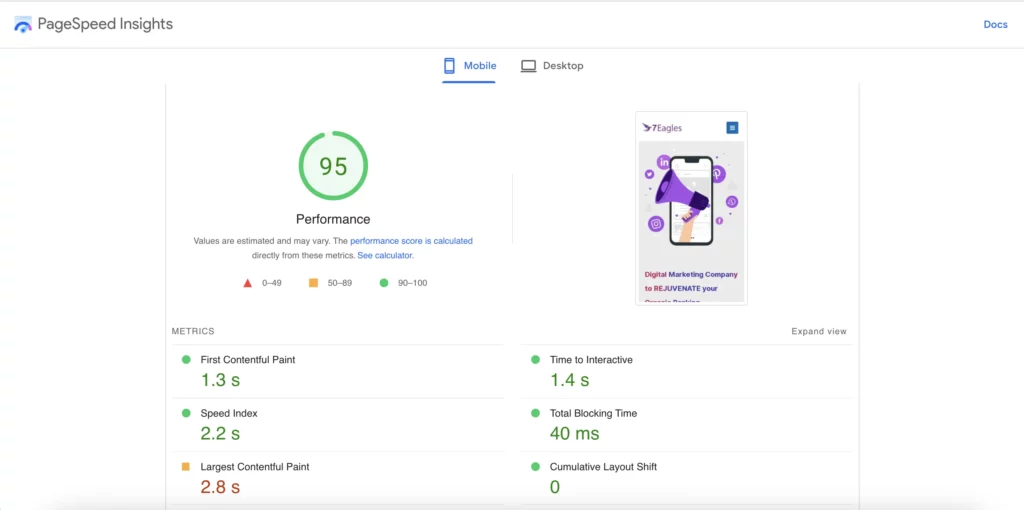
Core web vitals is an important factor that can affect the overall performance of your website. Google currently uses Core Web Vitals as their website loading speed analyzer.
Slow loading web pages have a direct effect on your conversion and bounce rates. A low page speed score leads to low conversion and high bounce rates.
In today’s fast-paced world, no one is willing to wait for your page to load more than 2.5 seconds. They will leave if the site takes longer to load. So page speed is an important metric that can directly affect the performance of other metrics.
You can refer to Google’s PageSpeed Insights to understand more about page speed metrics. The range of scores for page speed is as follows.
Score | Performance |
100 | Highly efficient |
90 and above | Good |
50 to 90 | Needs Improvement |
Below 50 | Poor |
Time spent on page
The lower the bounce rate is, the higher the time spent on page will be. It is one of the most effective metrics to measure how attractive and impactful your content is to your customers.
To decrease the bounce rate and increase time spent on page, you can improve the quality of your content and website design.
You can use Google Analytics to track the average time a customer spends on your website.
You can track the time spent on individual pages, know which aspect of your content is more attractive to your customers, and optimize your website accordingly.
Conversion rate
Your conversion rate is the end goal of your SEO strategy. You can consider your SEO campaign a success based on the percentage of your conversion rate.
Conversion rate is the percentage of visitors who have “converted” into your customers. For example, when a visitor makes a purchase or subscribes to your page, it means they have converted into your customers.
You can use Google Analytics to measure conversion rates. You can set up goals in Google Analytics and measure how many people have met your goals.
You can set different goals for visitors, such as watching a video, reading an article, subscribing to your newsletter, providing their information, etc.
How long does it take to get better SEO results?
SEO does not give you immediate results. It is a slow process and takes time. The key to SEO success is consistency and regularly implementing new strategies.
Always remember that you have never completed a campaign. There are always changes and improvements that you can implement in them.
Also, know that your success in SEO also depends upon who your competitors are and what keywords you aim to rank for.
If you are consistent and implement a well-researched strategy, you can expect to see results in about four months to a year.
If you wish to see results in SEO, stay consistent and update your campaigns or strategies regularly. Over time, you will see results that are effective and long term.
Tools to help you track SEO
When it comes to measuring your SEO performance, there are plenty of tools that you can use. You can use these tools to evaluate and make improvements to your SEO strategy accordingly. Here are some tools that can help you with it.
Google Search Console
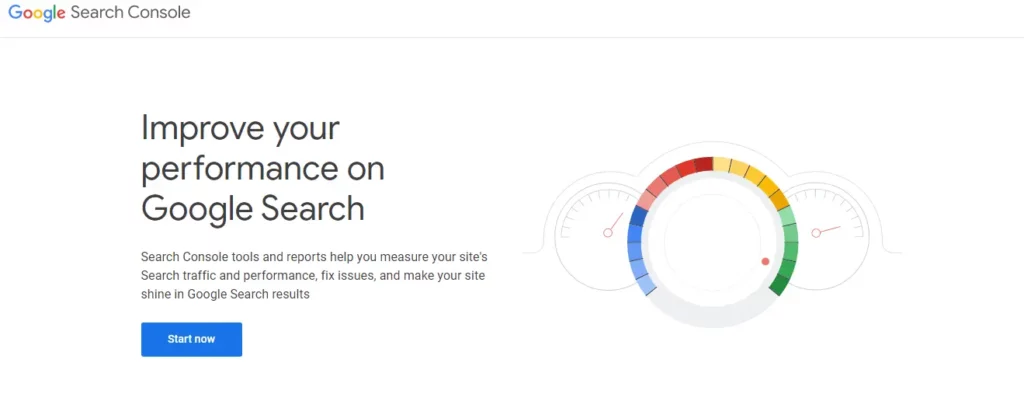
Google Search Console is a free SEO tool offered by Google. It helps you monitor, maintain, and analyze your site’s performance in Google search results.
It provides valuable reports on your user engagement, areas of improvement, and any errors in your pages.
Google Analytics
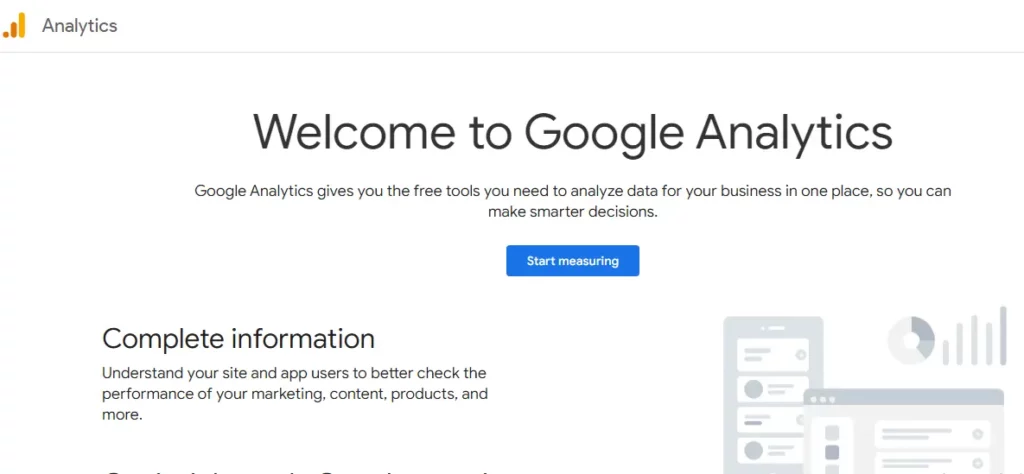
Google Analytics provides insight into your business by collecting customer data from your websites or apps. It can help you analyze the quality of your traffic.
PageSpeed Insights

PageSpeed Insights (PSI) gives you reports on your user’s experience of your web page (on both desktop and mobile devices). It gives you clear data on the loading speed of your web pages and provides suggestions for improvement.
Bing webmaster tool
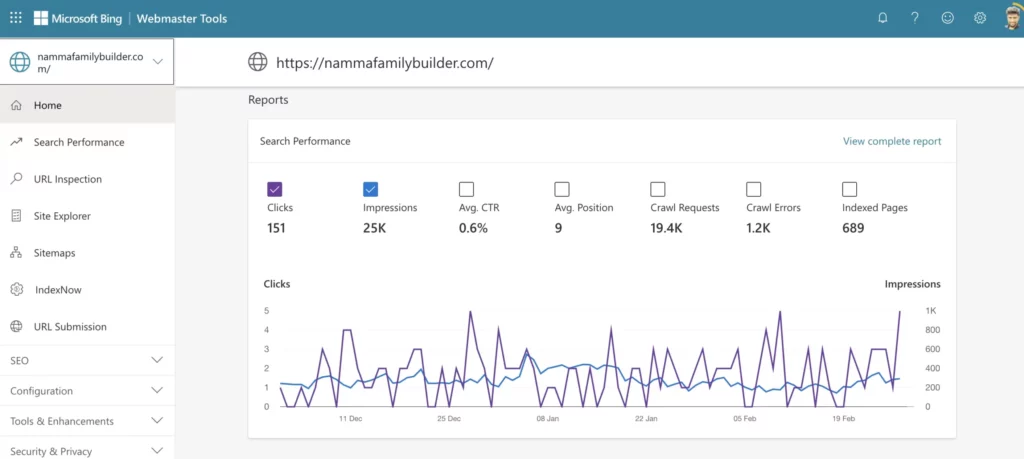
Bing Webmaster Tools allow you to monitor your website’s overall health and helps you know how your customers find your website. You can use it to find keywords that drive traffic and the impressions and clicks of those keywords.
Lighthouse Audit
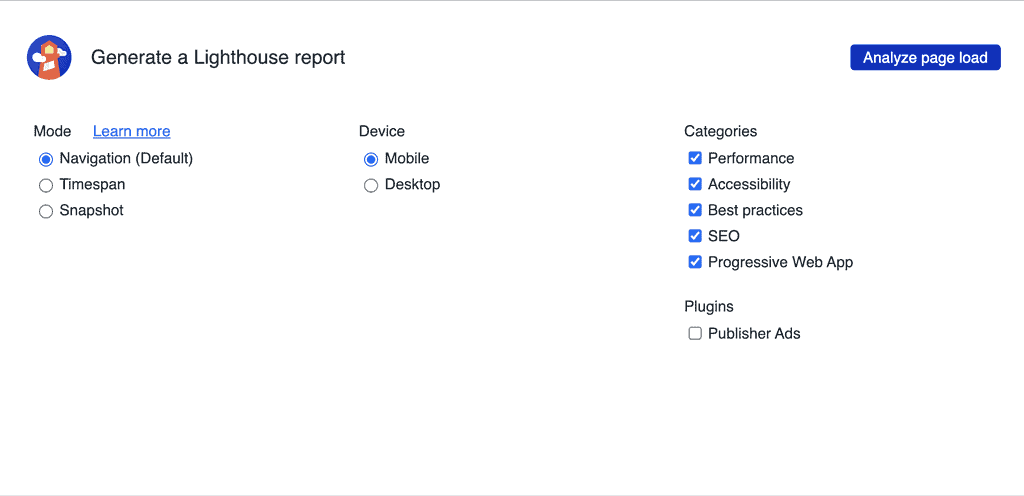
Lighthouse Audit is an automated tool provided by Google. It allows you to measure the performance and accessibility of your website, i.e., details like the speed and ease of navigation through your website.
Conclusion:
- SEO is an effective strategy that can help develop your business.
- If done right, it can bring various benefits that can grow your business exponentially.
- Now that you know some of the metrics through which you can measure your SEO performance, use this to track the results of your work.

